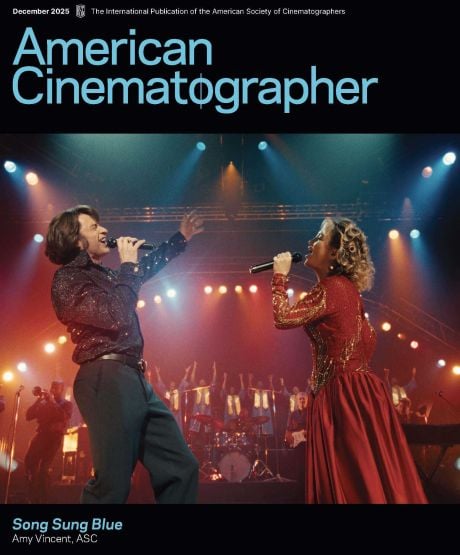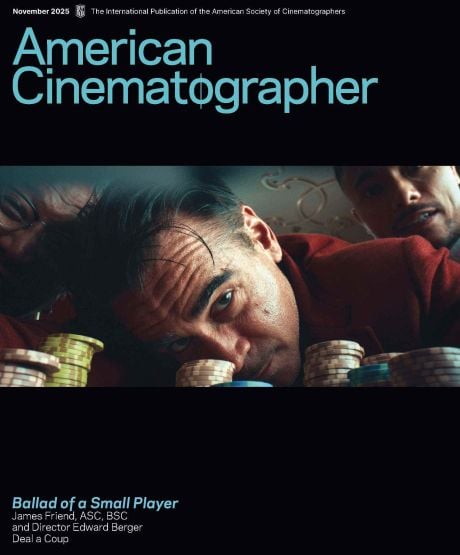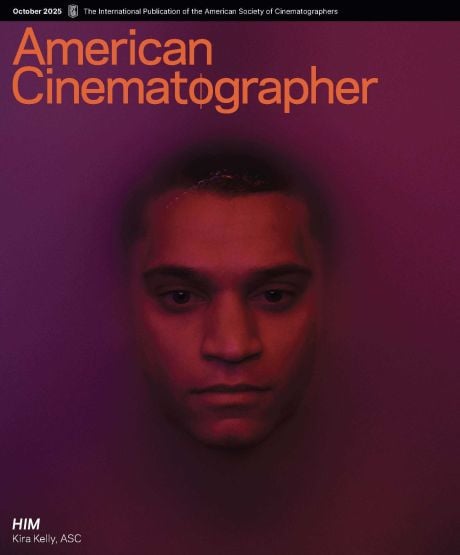
President’s Desk: The Film Buff
Addressing how the media abandoned civility and truth in the case of AMPAS President and ASC member John Bailey.

There was once an era in Hollywood filmmaking that uplifted the underdog, that cherished the right thing, that celebrated justice. The narratives of these classic movies reflected a culture of freedom. They addressed civil rights, social injustice, and the challenges that must be overcome when the law moves in the wrong direction. We were glued to the words and actions of Atticus Finch (Gregory Peck) in To Kill a Mockingbird, and fascinated by James Stewart’s Jefferson Smith in Mr. Smith Goes to Washington. Decades later, the same spirit found us swept away by Erin Brockovich’s story of an individual fighting a powerful energy company, and moved by Robert Redford’s performance as Tom Logan in Legal Eagles, devoted as he was to the presumption of innocence, the notion that “one is presumed innocent until proven guilty.”
At the height of this bygone era, we were kept informed about industry news on a daily basis by trade publications like Variety and The Hollywood Reporter. There were also the popular movie columnists of the day, including Louella Parsons and the legendary gossiper Hedda Hopper. Hopper, for one, proved that the pen could indeed be mightier than the sword, as she used her column to name suspected communists and ruin careers — including those of great writers like Dalton Trumbo — during the McCarthy era.
I was contemplating all of this on a recent spring afternoon, trying to comprehend the wave of negative press levied against our Society member — and president of the Academy of Motion Picture Arts & Sciences — John Bailey in the wake of a leaked sexual-harassment allegation. After Variety reported that “The Academy received three harassment claims,” citing “sources familiar with the situation,” John was quickly put on public trial. The purported allegations were widely accepted as gospel by the national press, on Twitter, and throughout the blogosphere. By sundown, he was as good as convicted.
Having known John for a number of years, and having worked with him on initiatives of social importance, I personally could not fathom his being involved in this scenario. But the investigation had to follow its course. I could only hope that John would find the help of a Gregory Peck-like attorney, one who would drill down to the depths of the truth, defending John’s character and morals, and ultimately exonerating the defendant and even turning him into a local hero.
Of course, real life almost never plays out in the classic Hollywood style. Wanting to allow the Academy’s internal investigation to proceed, John was silent at first, then issued a memo to the Academy staff in which he clarified that there was a single complaint under investigation, not three, and said in no uncertain terms that the incident in question “did not happen.” Less than two weeks later, the Academy concluded its investigation; in a statement, the Academy explained that the Membership and Administration Committee “unanimously determined that no further action was merited on this matter. The findings and recommendations of the committee were reported to the Board, which endorsed its recommendation. John Bailey remains President of the Academy.”
I don’t expect we’ll ever know exactly what transpired behind the closed doors of the Academy’s investigation. But maybe one day we will see a movie with a similar narrative that will help us understand what John and his wife, Carol, must have gone through during those weeks of uncertainty, and the trauma that must linger even after the investigation’s conclusion. Or, for that matter, a movie that highlights the motives and circumstances of the accuser, hauntingly lit by the “bonfire of the vanities” that Variety initiated.
Standing up for rights is the proper thing to do. The historical — and in too many instances continuing — treatment of women and minorities is not right, and it is our responsibility to take action. But as we do so, we must remember: Civility and truth are the basis of our being.

Kees van Oostrum
ASC President




